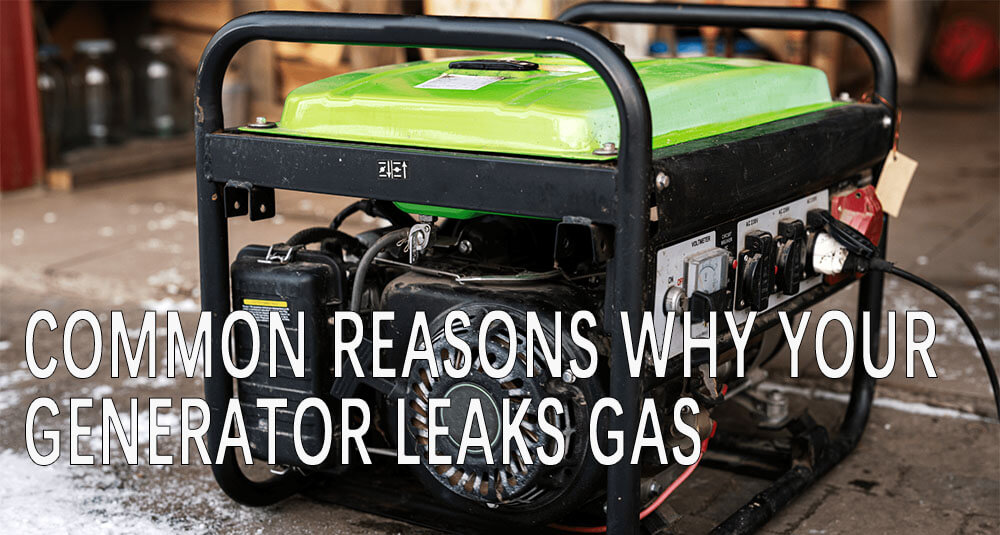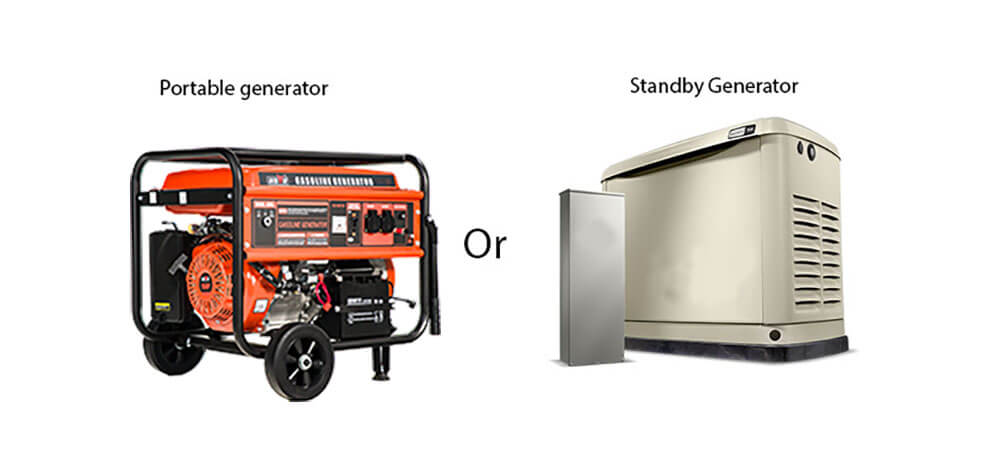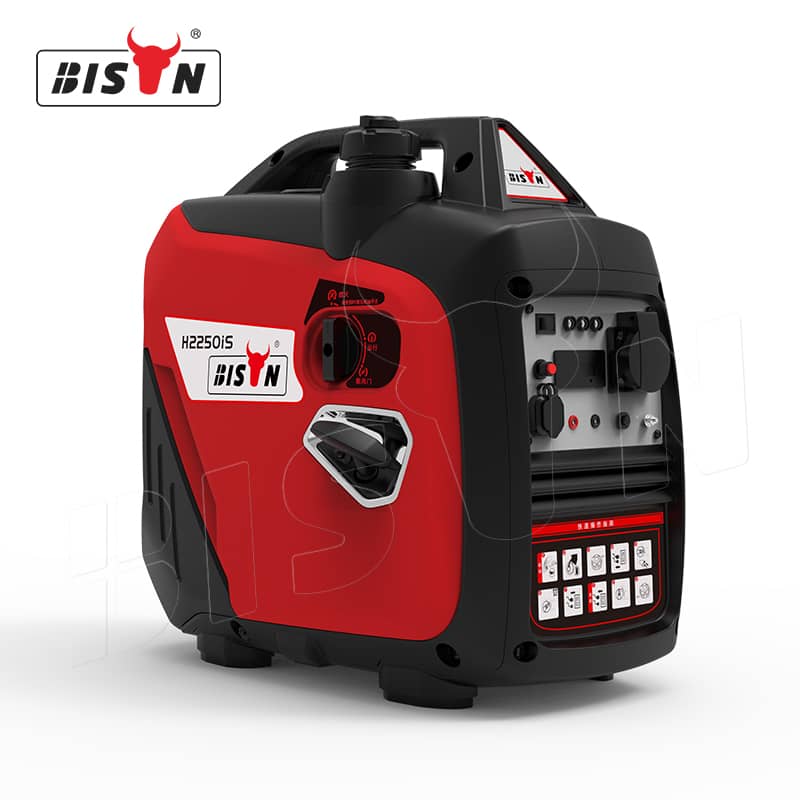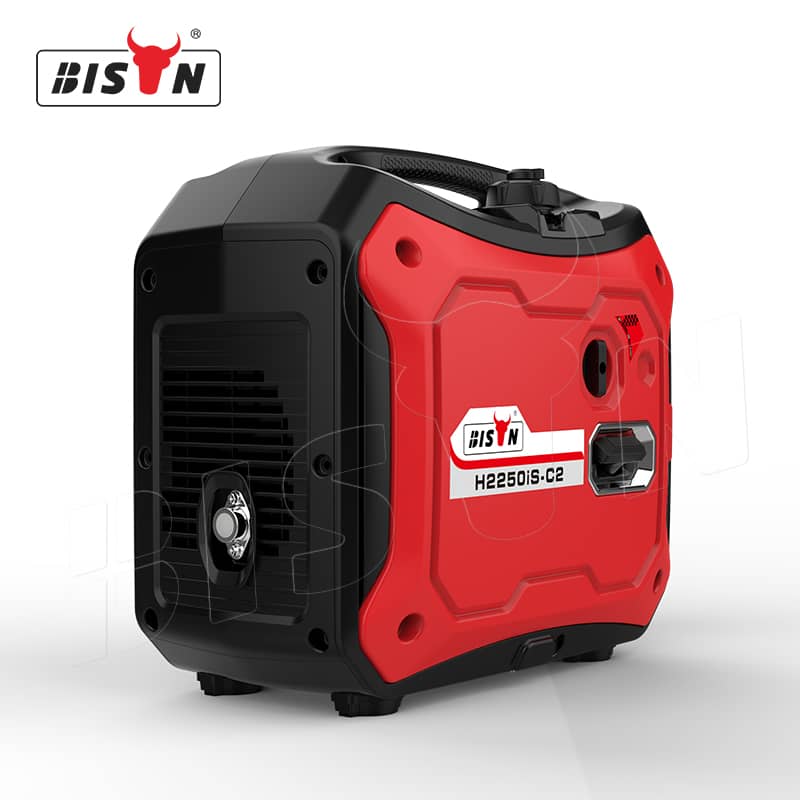How to Make your Generator Quiet (Easy tips and tricks)
- By BISON
Table of Contents
The generator is a very useful item. Whether you’re camping or using your generator at home, the constant noise of a generator can be very annoying. Fortunately, there are a few things you can do to quiet down your generator so you may use it whenever and wherever you want without making a noise.
Rread these easy tips and tricks to make your generator quieter.

Why is the generator so loud?
Because generators are essentially engines, they are loud. When looking at generator noise sources, the two most important are the engine and exhaust.
Engine
The engine of a generator is its source of mechanical energy. It uses fuel, such as gasoline, to power pistons connected to an alternator. However, we don’t need to go deep into the intricate workings of generator engines.
What is important to us is the type of sound the generator engine produces. This is the impact sound because the waste energy of the generator is kinetic energy (vibration). These vibrations enter the surrounding structure through the generator and into the floor through its feet.
Exhaust
The generator’s exhaust is mainly used to discharge exhaust gas, but it can also make some sound. These sounds come from gases under high pressure inside the engine. As it escapes through the exhaust, it sounds like a sputter.
When the engine produces an impact sound, the exhaust from the generator produces an airborne sound.
How to make a generator quiet?
Here are some tips to make your generator quiet and live and peaceful life.
1. Turn the exhaust pipe away from you
When using a generator, the first thing to keep in mind is the generator’s location, especially the generator’s exhaust end.
You should always keep this side of the generator away from your campsite. For some models of generators, it is also possible to point the exhaust pipe towards the sky. Either of these positions will direct the noise directly from the exhaust away from you.
2. Place your generator away from you
The next thing to remember is how close you’re placing it to you. This placement is one of the most important factors in ensuring quiet when using a generator.
Most generator brands will display the decibel rating for that particular model. These decibel levels are usually measured about 7 meters from a running generator. So if you want to operate in that decibel range, a good rule of thumb is to keep your generator 20 feet away from you at the least.
3. Place the generator on a soft surface
Another important factor to consider when figuring out how to silence a generator is the surface on which you will place it while it is running. Once you’ve found the right distance to place the generator, you’ll want to make sure you’re placing it on a surface that dampens the noise rather than amplifies it.
It is best to avoid all hard surfaces. So don’t put the generator on concrete, wood, or asphalt, as these surfaces will only add noise.
Often, if you’re camping, dirt or grass are the best and only options for setting up a generator. Suppose you are in a situation with no softer ground to place the generator on. Shock pads are a great solution here. Anti-vibration pads are usually rubber and help dampen vibration and noise from the generators. Consistent with this approach, and less expensive, is to use shock absorbing feet, which is also a good idea.
4. Creating a Soundproof Environment for Your Generator
To significantly reduce the noise produced by your generator, consider creating a soundproof environment. This method combines the use of an acoustic blanket, sound deflectors, and a soundproof generator box.
- Wrap the Generator in an Acoustic Blanket: Start by wrapping your generator in a specially designed acoustic blanket. These blankets are made from sound-absorbing materials that can effectively dampen the noise output.
- Use Sound Deflectors: Next, incorporate sound deflectors into your setup. These deflectors work by redirecting the sound waves away from your living or working area, thereby reducing the perceived noise.
- Build a Soundproof Generator Box: For the best results, place the wrapped and deflected generator inside a soundproof generator box. This box can be built using various soundproofing materials and should have proper ventilation to prevent overheating.
By combining these three methods, you can create a more peaceful environment by substantially reducing the noise produced by your generator. Remember, while doing this, it’s important to ensure that the generator is still adequately ventilated and accessible for refuelling and maintenance.
5. Upgrade your muffler
Reducing generator noise can significantly improve the comfort of your environment, and one effective way to achieve this is through enhancing the quality of the muffler.
The muffler plays a crucial role in controlling the noise produced by the generator’s exhaust system. It’s designed to direct exhaust gases out safely while reducing the sound produced by the high-pressure gas that exits the engine.
Upgrading or improving your generator’s muffler can reduce the noise by approximately 10-12 decibels. This can be achieved by either replacing the existing muffler with a higher quality one or adding a muffler silencer to dampen the sound further.
However, make sure you have a good understanding of installing them, or you may end up blocking the exhaust flow.
6. Check the cooling fan
The generator has a built-in cooling fan to prevent the engine from overheating. While it doesn’t make noticeable noise, the cooling fans still cause noise from the generator.
This is why newer generators are built with liquid cooling technology. Generators with liquid cooling tend to be quieter and better keep the generator engine cool and well-ventilated.
7. Regular Maintenance
Regular maintenance and cleaning of the generator can also contribute to noise reduction. A well-maintained generator runs more smoothly and quietly. This includes regular oil changes, filter replacements, and ensuring that all parts are in good working order.
8. Buy a new generator
This is an obvious solution, but it works. The rule of thumb for mechanical devices is that newer is generally better.
How long is it since you replaced your generator? It might be time to upgrade if it’s more than ten years.
But, also think about the size of the generator that you need. The more power your generator can put out, the more noise it will make. You should weigh the amount of power you need, the amount of noise you’re okay with, and how much you’re willing to spend on a generator.
With generators, bigger is not always better, despite the fact that this is frequently the case. Aside from weight, larger generators are usually noisier. Therefore, to reduce unneeded noise, stick to a suitable power range when purchasing a new generator.
Better still, opt for a BISON inverter generator if you can. BISON inverter generators are specifically designed to have a higher wattage output while quieter than other models. However, these generators are generally more expensive due to having the best of both worlds.
final thoughts
We hope some of these tips help you make your generator quieter. Purchasing a new generator is the easiest and most effective way to make your generator quieter. If you decide to build a box, consider adding more layers of soundproofing to ensure effective noise reduction.
Whichever method you choose, just make sure the generator still works! If you need more help with generator quieting, you can contact us online. BISON’s expert team is always ready to help you.
FAQs about making your generator quiet
Can my generator have an extended exhaust?
Yes, the generator exhaust can be extended by attaching a custom exhaust extension pipe.
Why is the inverter generator quiet?
Inverter generators operate with different load capacities, which can be sped up or slowed down according to the load.
How many decibels are the generators?
The total decibel level of a generator depends on many factors, but you can expect it to be between 60dB and 100dB. Standby generators are generally quieter than portable generators, mainly because they are heavier and larger, which equals lesser noise emissions.
In addition to size and type, you must also consider build quality. While high-end generators can still produce noise, lower-quality generators will almost always be louder. This is because the parts are worse, which means they are more prone to vibration.
Finally, it would be best if you also considered the power output of the generator. A 50kW generator might produce around 85dB of sound, while a 1,500kW generator might produce up to 105dB of sound.
In short, the noise level of the generator has a significant impact. But, importantly, you’ll want to quiet your generator if you think it’s too loud.
Most Popular Posts
QUESTIONS?
CONTACT US TODAY.
buy?
Related Posts

diesel generator components
BISON will explore the key components of diesel generators and understand how each part contributes to their overall performance and reliability.

Common reasons why your generator leaks gasoline
In this guide, BISON covers common causes of gasoline leaks, warning signs to watch for, and how to fix the issue.

portable or standby generators: which one fits your needs?
This article by BISON breaks down the differences between portable and standby generators. By the end, you’ll find which one fits your needs best.
.png)


-qbpqbzxxvtguiuwezisu6wo6j1i29b4m1el1ir1u8o.png)

